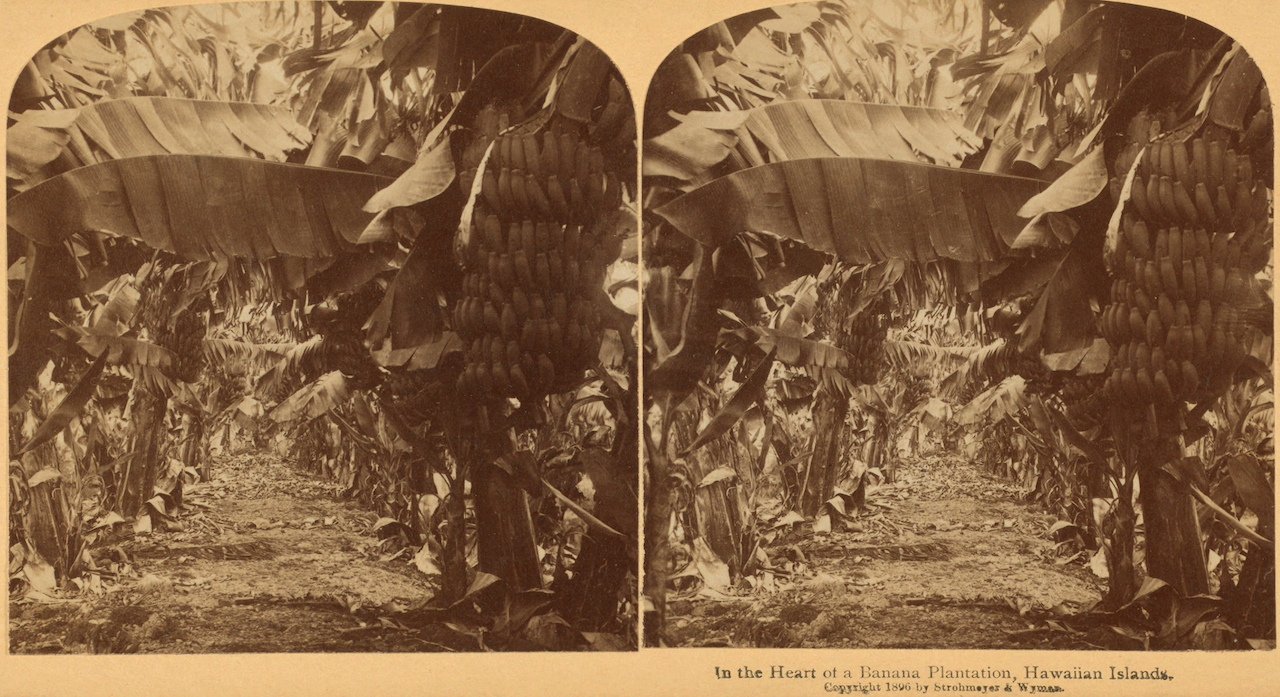
Publications
“A Garden in the Cotton Fields: Fannie Lou Hamer and Cooperative Economics on the Freedom Farm.” Rural Imaginations for a Globalized World, edited by Esther Peeren and Tjalling Valdés-Olmos, Brill, 2025.
Fannie Lou Hamer’s Freedom Farm Cooperative (FFC) exemplifies placemaking in a hostile environment: the Mississippi Delta, a rural area located in the Deep South of the United States characterized by intensive agriculture. The Freedom Farm, established in 1969, served as an interracial agent of social change in a region dominated by a white supremacist agrochemical regime of plantation production. The Freedom Farm was not just an attempt to alleviate poverty and empower local working-class people, but also offered a more sustainable alternative to the large-scale agribusiness model that was harmful to humans and other-than-humans inhabiting the Mississippi Delta ecosystem.
“Plantations in the Peatlands? Domestic Colonization and Settlement in the Nineteenth-Century Dutch North,” Settler Colonialism as a Structure, edited by Clemens Six and Jeremia Pelgrom, KNIR, 2025.
To what extent did the plantation model direct domestic colonization and settlement in the Dutch North during the nineteenth and early twentieth century? Were there connections between settlement and resource extraction in the northern Netherlands and imperial pursuits abroad? And can a multispecies approach be helpful in determining whether settler colonial dynamics were at play in the cultivation of the “unlands” in Drenthe and Groningen, without engaging in multispecies flattening? I am interested in the environmental dimensions of domestic (settler) colonial pursuits and how they intersect with labor exploitation and the mining of natural resources.
“Swamp Manifesto: Manifestations of the Swamp.” Soapbox: Journal for Cultural Analysis, no. 5 (Fall 2024): 21-39.
Swamps have many meanings. These meanings often are negative: swamps tend to bog humans down and need to be drained in order to make the terrain they occupy useful, for instance as farm- or peatland. But when we take a closer look at wetland ecosystems, they reveal a multitude of worlds: from maroon geographies and anti-capitalist sites of resistance to defense systems against global warming and habitats of unique yet vulnerable species. This essay does two things: it discusses various manifestations of the swamp and simultaneously works as a manifesto for wetlands, from an environmental, cultural, and sociopolitical perspective. A swamp is never "just" a swamp, but a site and symbol of fundamental struggles that define the nature of our planet.
“Plantationocene Geographies: Petro-Multinationals, Agribusiness, and the Racial Ecology of the Cold War Mississippi Delta.” The Global South 16, no. 2 (Spring 2023): 49-67.
The Cold War Mississippi Delta figured prominently as a hotbed of massive resistance against racial integration and as a civil rights battleground, in particular during the 1950s and 1960s. It was also home to an agrochemical regime of plantation production that heavily impacted regional ecosystems. This essay addresses the interplay between white supremacist politics and environmentally destructive forms of large-scale farming, especially the connections between petrochemical manufacturing in Louisiana and plantation agriculture in Mississippi’s Delta region. I discuss how a Jim Crow mindset manifested itself in these industries, with toxic repercussions for both society and nature. The petro-multinationals that settled along the Mississippi River were active in various parts of the planet and the crops grown on Delta neoplantations were sold on world markets, making the activities of these companies distinctly global in character. The essay considers the factories in Louisiana and the large-scale farms in the Mississippi Delta as part of a unified agrochemical entity that can be considered a Plantationocene geography: a globalized business conglomerate based on a racialized labor system and an extractive, for-profit logic that was detrimental to local communities and the environment. With the arrival of the oil and gas plants in Louisiana and the rise of the neoplantation during the New Deal years, an industrialized and poisonous racial ecology began to develop in the southern Mississippi River Valley wherein water, land, and minerals served as resources for the enrichment of a select few.
“Swamp Things: The Wetland Roots of American Authoritarianism.” Planetary Hinterlands: Extraction, Abandonment and Care, edited by Pamila Gupta et. al., Palgrave Macmillan, 2023.
“Swamp Things” demonstrates the swampy origins of Trumpism with a case study of the hinterland strongman Leander Perez, who ruled Plaquemines Parish in southern Louisiana from the 1920s through the 1960s. Dubbed the “Boss of the Delta,” Perez considered the parish his own watery white-supremacist empire, where racist practices went hand in hand in with environmentally destructive forms of oil drilling in the Gulf of Mexico and industrialized petrochemical production along the Mississippi River. In the liquid subtropical hinterlands of the U.S. South, racialized, authoritarian regimes of labor and resource extraction developed anew after the demise of slavery. The politics of these regimes finally materialized at the federal level when Donald Trump, the landlord of Mar-a-Lago (“Sea-to-Lake”), became president. His promise to “drain the swamp” had very specific connotations that harken back to the days of Leander Perez.
“Plantation Myths, Plantationocene Realities: Oil and Tourism in the US Gulf South and Dutch Caribbean,” Study the South (October 2025).
Plantations, petrochemical plants, and the tourism industry constitute important economic factors in the histories and societies of the Greater Caribbean. In this new essay, “Plantation Myths, Plantationocene Realities: Oil and Tourism in the US Gulf South and the Dutch Caribbean,” Jan Bant, Thomas van Gaalen, and Maarten Zwiers analyze the connections between plantation agriculture, petro-multinationals, and the hospitality industry in the Gulf South (in particular, Louisiana and Mississippi) and the Dutch Caribbean islands of Aruba and Curaçao. Employing the Plantationocene as a conceptual framework, Bant, van Gaalen, and Zwiers compare the ways in which the afterlives of slavery manifest themselves in the current realities of oil and tourism.
In particular, this essay shows how landscapes once shaped by slavery are now reconfigured by oil infrastructure and resort developments—preserving often invisibly—racial hierarchies and labor stratifications. It emphasizes how petrochemical plants sit on former plantation lands, how tourism recasts former slave estates into sites of luxury and leisure, and how both industries depend on marginalized populations for low‐wage, precarious work. By weaving together environmental degradation, health disparities, and cultural mythologies such as the “romantic plantation,” this analysis reveals that slavery’s legacies survive not only in social memory, but in land use, labor regimes, and patterns of exclusion in both the Deep South and the Dutch Caribbean today.
“Jim Crow Democracy: The U.S. South and Racialized Policy-Making in the Aftermath of World War II.” International Journal for History, Culture and Modernity 7, no. 1 (2019): 547-565.
Segregationist politicians from the U.S. South played key roles in devising plans for the reconstruction of Germany, the Marshall Plan and the drafting of displaced persons legislation. This article discusses how their Jim Crow ideology calibrated the global and domestic order that emerged from the ashes of World War II. Southern advocates of this ideology dealt with national and foreign issues from a regional perspective, which was based on the protection of agricultural interests and a nascent military-industrial complex, but above all, on the defense of white supremacy. In general, they followed a lenient course toward Germany after the country’s defeat in World War II, for various reasons. The shared experience of post-war reconstruction, containment of communism and feelings of kinship between the Germanic people and the Anglo-Saxons of the U.S. South were some of the motives why many white southerners did not endorse punitive measures against the former enemy. For them, an obvious connection existed between the local and the global, which strongly reverberated in the formation of U.S. foreign and domestic policy in the post-war world. The rebuilding of Germany and the fugitive question were shaped on the basis of a Jim Crow blueprint.
“Hoe Drenthe de Blues Kreeg: Harry Muskee en de Migratie van Bluesmuziek.” Nieuwe Drentse Volksalmanak 138 (2021): 57-70.
Blues music finds its roots in the plantation system of the antebellum U.S. South and underwent many transformations before it reached a broad audience in Western Europe during the 1950s. Despite its ever-changing nature, European teenagers of the post-World War II baby boom generation conceived it as authentic, pure, and not commercial and therefore an ideal vehicle to rebel against the conformity of white bourgeois society. The Rolling Stones are a famous example of this appropriation of Black music by white musicians, but also Dutch singer Harry ‘Cuby’ Muskee and his band the Blizzards used African American music traditions to break away from the dominant culture. Besides blues music, Muskee also found inspiration in the literature of beat authors. Once he moved to an old farmhouse in the village of Grolloo, his escape from the mainstream was complete and Cuby himself became an authentic bluesman, a persona that was unmistakably connected to the rural province of Drenthe.
“A Strongman Republic: Trumpism and the Cold War History of Race and Authoritarianism in U.S. Foreign Policy,” Atlantic Perspective (September 2024).
The political rise of Donald Trump not only had ramifications at the national level, but also for U.S. foreign policy. Trumpism constitutes a sharp break with the official policies of previous administrations since World War II, yet authoritarian proclivities have always been part of U.S. political culture. Strongman tendencies, which were often racialized, form an intrinsic element of American politics, both at home and abroad.
